They may have trouble legislating, but congressional Democrats are already drawing up plans for investigating if they score big gains in the midterm elections Tuesday.
It’s one area where vast changes are guaranteed if Democrats reclaim at least one chamber of Congress — the committees investigating President Trump’s Russia ties, finances and ethics questions will have a much different focus than they did under Republican control.
House Democrats said the investigation into Russian election-meddling and Mr. Trump’s campaign focused just as much on Justice Department overreach and FBI bias. They said they will reopen the inquiry into Mr. Trump’s campaign that their Republican counterparts largely declared closed.
Among the targets: The notorious June 2016 Trump Tower meeting between top Trump campaign aides and a Russian lawyer, the president’s tax returns and Mr. Trump’s personal and commercial ties to Russian interests.
Although Mr. Trump repeatedly denies any wrongdoing, questions about Russia’s election meddling has been a constant headache for the president in his first two years in office. To date, 32 people and three companies, including four former aides of Mr. Trump, have been indicted or pleaded guilty in special counsel Robert Mueller’s investigation.
Republicans are warning that an investigative overkill could paralyze the government for the next two years if Democrats take power. Democrats say they are conducting long-overdue oversight of the executive branch that the Republican majority failed to do since Mr. Trump was elected.
Sources say a Democratic majority in the House will usher in even more investigations, especially from committees devoted to intelligence and oversight, with money laundering and executive branch corruption firmly in the spotlight.
Although senior Democrats deny they will target Mr. Trump for impeachment, that extreme recourse could surface in the House Judiciary Committee, depending on the national mood and the strength of the political earthquake Tuesday.
“You’re going to see all hearings 24/7 that are oversight or investigation,” said Barbara “Biz” Van Gelder, a veteran attorney of multiple congressional inquiries, including hearings for Supreme Court nominee Brett M. Kavanaugh.
A key to the effort, Democrats say, is a recent House rule change that gives committee chairs far more authority to issue subpoenas.
Subpoenas, and the threat to issue them, could bedevil a White House used to dealing with more friendly majority Republicans.
But few expect the Trump White House to submit meekly to an emboldened opposition party. Executive branch witnesses could defy subpoenas, risking contempt of Congress charges. The Supreme Court may be busy adjudicating claims of legislative and executive privilege in the coming years.
“It’s the bipartisan playbook,” Ms. Van Gelder said. “The executive branch will always slow-roll documents and argue executive privilege to congressional oversight committees.”
Republicans who have been questioned in House and Senate intelligence investigations see a waste of time and resources.
“Fully expect that if the Democrats retake the House,” said Grant Smith, an attorney for former Trump campaign adviser Roger Stone, “my client and others could be dragged back through a process that has already been completed.”
Schiff at the helm
The most dramatic and acrimonious shift may well be the potential ascension of Rep. Adam B. Schiff, California Democrat, to the chairmanship of the House Permanent Select Committee on Intelligence if the House changes hands.
The media-savvy Mr. Schiff, who has feuded openly with his fellow Californian and Republican committee Chairman Devin Nunes, has the distinction of earning two nicknames from Mr. Trump: “Sleazy” and “Little.”
A near-ubiquitous presence on cable and national political talk shows, Mr. Schiff has promised that if he assumes the intelligence committee chairmanship, he will reopen the Russia investigation that Republican leaders closed in March after finding no evidence of collusion between the Kremlin and Mr. Trump’s campaign.
Mr. Schiff and other Democrats insist key facts and important witnesses have been ignored, especially allegations of Russian money laundering.
“Were the Russians laundering money through the Trump Organization?” Mr. Schiff asked on CNN last week, warning that the Kremlin could “be influencing U.S. policy in a way that is against our national interest.”
However, Mr. Schiff and other Democrats have acknowledged the dangers of overreaching and spilling into Mr. Mueller’s investigation.
Mr. Schiff has said he is unsure of the extent to which the special counsel is exploring money laundering as part of the wider Russia investigation. Others have expressed questions about Mr. Mueller’s unusual charges of “conspiracy to defraud the government.”
“We want to be precise,” said Rep. Eric Swalwell, another California Democrat on the intelligence committee.
Broad probe
Rep. Elijah E. Cummings, Maryland Democrat, is in line to chair the Committee on Oversight and Government Reform, which has a broad investigative mandate across multiple government agencies.
Democrats on the oversight committee promise to vigorously pursue the Trump White House, in contrast with what they say has been Republican dereliction of duty. They blame their inability to dig more deeply into the Trump-Russia issue on retiring Chairman Trey Gowdy, a South Carolina Republican who did not approve one of their 64 motions to subpoena either witnesses or documents.
“This used to be the oversight committee,” Rep. Stephen F. Lynch, Massachusetts Democrat, said in July after Mr. Gowdy rejected a motion to subpoena Director of National Intelligence Daniel Coats to testify publicly about Russian efforts to meddle in U.S. elections.
“This is the running-away-from-oversight committee since Trump took office,” Mr. Lynch said. “We do zero.”
Mr. Cummings has indicated that the committee could address Democrats’ belief that Mr. Trump “is profiting off the presidency” by violating the emoluments clause, which prohibits a president from receiving payments from foreign governments.
Democrats could also move to shield Deputy Attorney General Rod Rosenstein, who oversees Mr. Mueller’s investigation, from being removed by Mr. Trump. They also could investigate administration ethics and conflicts of interest, including the White House’s record-keeping and clearance processes.
Either way, Mr. Gowdy will not be around to challenge Mr. Cummings or engage in the bare-knuckle brawl between the White House and a potentially Democrat-controlled House. The South Carolinian, who also oversaw the high-profile investigation of the Benghazi disaster involving Hillary Clinton, is retiring after four terms in Congress.
© Copyright (c) 2018 News World Communications, Inc.
—-
This content is published through a licensing agreement with Acquire Media using its NewsEdge technology.



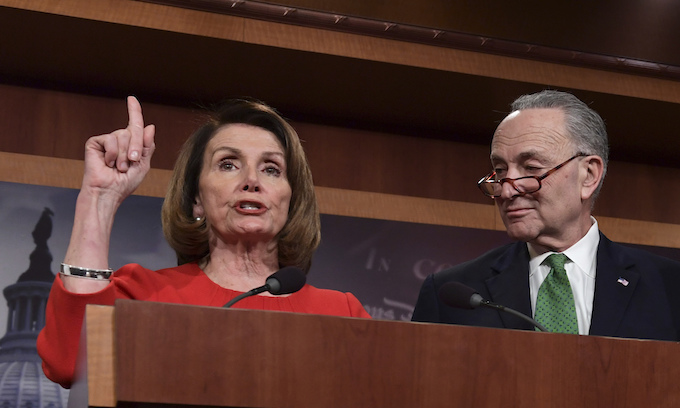

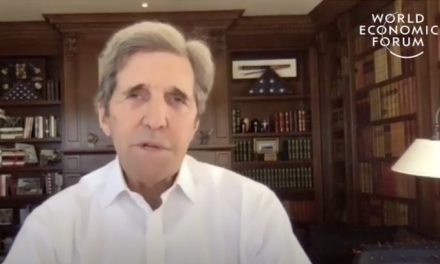

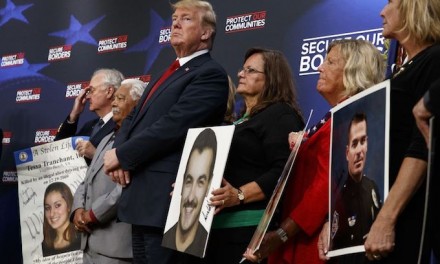







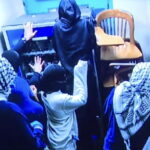


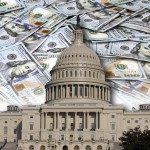

Recent Comments